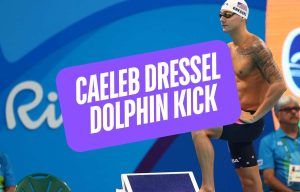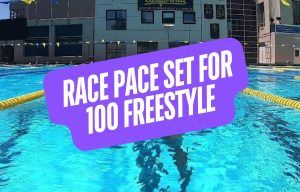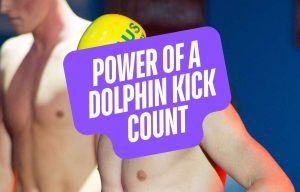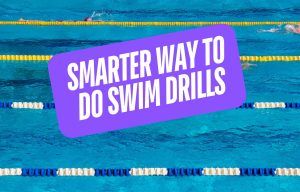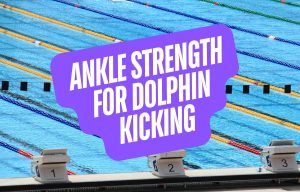Swimming fast teaches speed, improves confidence, and sharpens competitive instincts. Here’s why swimmers should go fast daily at the pool.
How often are you swimming at top speed in the water? How frequently are hitting—or at least attempting—race pace speeds?
If you’re like a lot of swimmers, it’s not often.
Going fast, whether it’s some fast 25s with lots of rest, all-out 50s with fins and paddles, or doing dive 15m breakouts at maximum velocity, isn’t just about increasing top-line speed.
(Even though that is an excellent benefit, too.)
Swimming fast every day helps you properly learn efficient speed in the water, builds confidence, sharpens competitive instincts, and increases focus and cognitive function.
Let’s dive in and unleash some speed and make the argument for more fast swimming at the pool.

You “learn” speed.
Like many swimmers and coaches, I often get caught up with theory.
The optimal head position. Proper hand entry angle. Timing the kick to help power the pulling motion.
Reading and analyzing the science of speed is great, but ultimately, speed can only truly be learned by doing.
All the theory and research might point you in the right direction, but until the body goes through the motions and understands how to position itself in the water, what efficient body position feels like, the speed isn’t truly “understood.”
To clarify, here’s an example.
Back in 2019, I spent a stretch of around five months doing a series of all-out 50 freestyle.
The rest periods varied, the amount of speed fluctuated depending on the target pace that week, but the goal did not change: swim fast 50s every day (except Sundays) and swim a lot of them.
(Some weeks, for example, I swam up to 120 all-out 50s with tons of rest. Not a lot of meters, but oweee the CNS fatigue.)
Beyond the conditioning benefits, one of the things that I really noticed during this time was that there were small–imperceptible to the outside viewer–changes in my technique that occurred at random moments during all of those reps.
For example:
- I realized I was almost gliding across the surface of the water when my head was in a neutral position, encouraging me to really focus on swimming “downhill.”
- Not breathing for the first four strokes off my breakout helped me retain enough speed without going into oxygen deprivation later in the reps.
- I learned that I could “throw” my arm forward and get more power out of the shoulder and hip rotation in my stroke.
- I realized that using a performance cue could help me manage the dead, cement legs during the last 15m of each rep.
These were all things that I “learned” during repeated sprints in the water and that I could not have embedded in my swimming if it were not for the reps and putting theory into practice.
Ultimately, you learn by doing.
And to learn speed, you need to swim with speed.
Builds confidence.
How often do you hit pace in training? How often are you pushing top line speed, trying to move the limits of your speed a little higher?
For most swimmers, it’s rarely ever.
As a result, it’s incredibly difficult to be confident on race day.
After all, if your goal is to swim a :53 in the 100m freestyle, but you’ve never cracked 1:00 in training, or done more than 1-2 reps of :27.5 (the goal 100m pace) in training, why would you be confident?
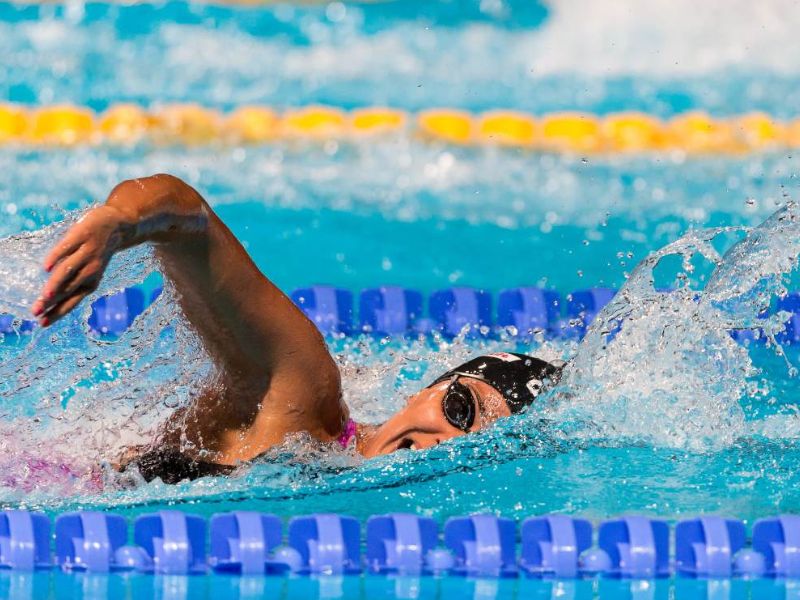
There’s no evidence to suggest that you will hit your goal, and as a result, any confidence you are feeling as you step up behind the blocks is going to feel like a lie.
Swimming fast in practice helps you build confidence on race day. If you’ve swum countless 50s of your 100m goal pace in training, you know that with a shave, taper, and a dive you are going to kick that goal in the rear end.
Learn pace.
Learn to compete.
Swimming fast is competing. You are pushing off the wall, hitting the gas, and competing to the best of your ability.
Whether you are racing teammates in the next lane, trying to stay ahead of the swimmer behind you, or chasing your specific race pace, sprinting is a competitive act.
Again, for the “practice swimmer,” the swimmer who performs well in practice but never experiences the stress and anxiety of competition in a training setting, this type of swimming can be highly beneficial.
It gives them a taste of more pressure so that they are better prepared to handle it when pressure happens on race day.
Increased focus.
I’ll come out and say it: there are times at the pool when my mind wanders and I check out. It’s always during the days where the primary focus is a longer, aerobically focused swim workout.
But on the days where it’s time to go fast…
I’m present. Focused. Fully invested.
Sprinting is a high focus activity that requires all of your attention and focus, which can help make practice go by a little faster as you avoid doing mindless meters and yards.
Going fast also increases cognitive function and neurotrophic factors.
In a study published in the Journal of Frontiers in Neuroscience, researchers took a group of young men and split them into two groups.
One group performed a five-minute warm-up and then did five rounds of 30 seconds maximum effort on a stationary bike followed by 4:30 of rest.
Compared to the resting control group, the sprint group experienced significantly increased brain-derived neurotrophic factor and cognitive function.
The Bottom Line
Ultimately, swimming fast is fun, which should be reason enough to do it more often.
But often, and this is definitely the case with a lot of swimmers, they get caught in paralysis analysis, using a desire for more theory before putting things into practice. Or they fear swimming all-out and seeing times on the clock that don’t match their aspirations in the water.
But fear not going fast. It’s the best teacher you will have in the pool.
More Stuff Like This
Sprint-a-Palooza: 60×25 All-Out for Speed and Glory. Here is one of my favorite sprint sets that incorporates resistance, race pace, and overspeed swimming.
Mental Training for Swimmers (FINALLY) Made Simple
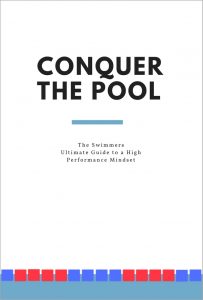
Whether you are tired of choking on race day, want to finally conquer your mindset so that you can give your PB’s the beating they deserve, or want to develop a killer game plan for your mindset, Conquer the Pool is your ticket to faster swimming.
“This is the best book I’ve ever seen concerning mental training.” — Ray Benecki, Head Coach, the FISH Swim Team
Used and trusted by some of the top clubs and swimmers on the planet and written with the feedback of 200+ head coaches, Olympians, former world record holders, and NCAA champions.






